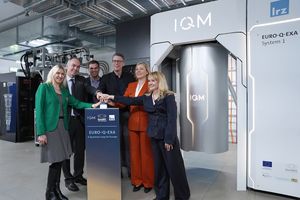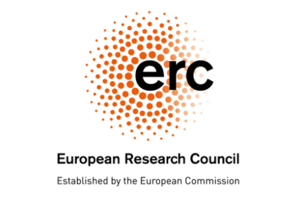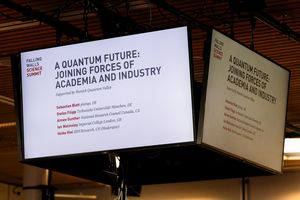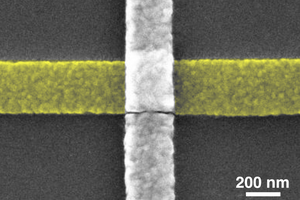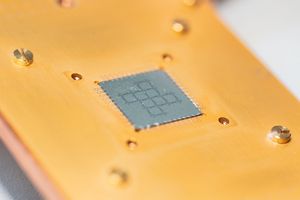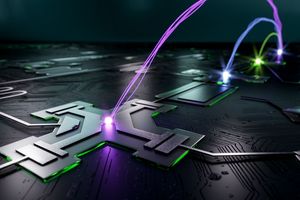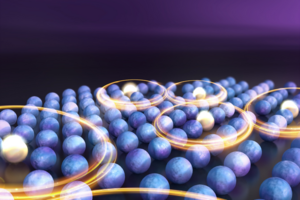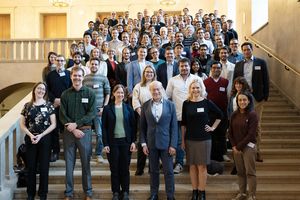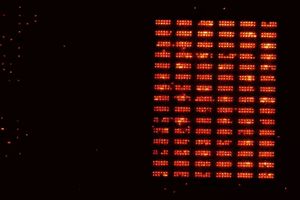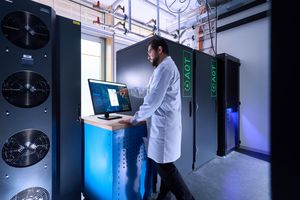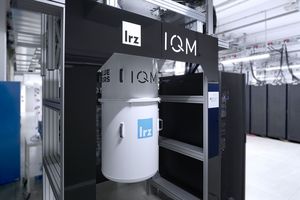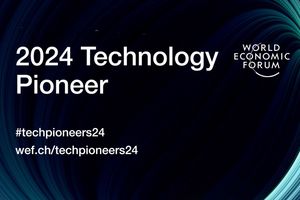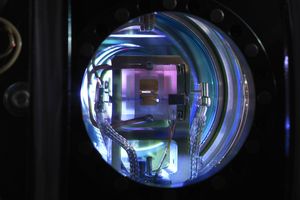
News
First European quantum computer for Germany: Euro-Q-Exa begins operation at Leibniz Supercomputing Centre
Today, Euro-Q-Exa, the first European quantum computer of the EuroHPC Joint Undertaking in Germany, went into operation at the Leibniz Supercomputing Centre (LRZ). The system has 54 qubits and is to be supplemented by an additional system with more than 150 qubits by the end of 2026. Connected to the LRZ's supercomputer, Euro-Q-Exa is now available to researchers in Europe and is intended to advance technical independence in quantum computing.
ERC Consolidator Grants for Christopher Eichler and Christian Schilling
MQV members Christopher Eichler of Friedrich-Alexander-Universität Erlangen-Nürnberg (FAU) and Christian Schilling of Ludwig-Maximilians-Universität München (LMU) have been awarded the prestigious Consolidator Grants of the European Research Council (ERC).
'A Quantum Future: Joining Forces of Academia and Industry' at Falling Walls Science Summit
At the Falling Walls Science Summit in Berlin, Munich Quantum Valley (MQV) brought together representatives from quantum innovation and technology to discuss how science and industry can collaborate to accelerate development and promote technology transfer.
Nobel Prize in Physics goes to three quantum researchers
In the anniversary year of quantum mechanics, the Nobel Prize in Physics goes to three physicists for their research in the field of quantum mechanics, which also laid the foundation for current research at MQV.
MQV institutes and start-ups play key role in EU’s first pilot line for superconducting quantum chips
The European Union has approved SUPREME, a major new pilot line to industrialize superconducting quantum chip fabrication, coordinated by VTT and funded through the EU Chips Joint Undertaking. As part of this initiative involving 23 partners across eight EU member states, one of the three central fabrication sites will be hosted in Germany, specifically in Garching and the Munich area, supported by a strong consortium of German research institutions and technology developers.
MQV researchers demonstrate efficient multi-qubit entanglement
A research team from Munich Quantum Valley (MQV) at the Walther Meißner Institute (WMI), has implemented Perfect State Transfer on a chain of six superconducting qubits and demonstrated its usefulness in efficiently connecting distant qubits and generating multi-qubit entanglement.
Arnold Sommerfeld School on "Quantum Computing – Status and Prospects"
MQV members are co-organizing this year's summer school on on "Quantum Computing – Status and Prospects" of the Arnold Sommerfeld Center for Theoretical Physics at LMU Munich, 6–10 October 2025.
Symposium "Towards applications of quantum computing": networking science and industry
On 11 and 12 November, the symposium "Towards applications of quantum computing" took place. The event was organized by Munich Quantum Valley (MQV) together with the Fraunhofer Institute for Cognitive Systems IKS, supported by Bayern Innovativ and QUTAC. The symposium brought together representatives from industry and science working on quantum computing applications with hardware and software developers.
MQV researchers continously operate quantum register with 1200 atoms for the first time
A research team from Munich Quantum Valley (MQV) at the Max Planck Institute of Quantum Optics (MPQ), in collaboration with the start-up planqc, has achieved a breakthrough on the way to scalable quantum computers. They assembled a quantum register of 1200 atoms and were then able to operate it continuously for over an hour.
Ion-trap quantum computer ready for novel research and development at the LRZ
The ion-trap quantum computer from Alpine Quantum Technologies, procured by the Leibniz Supercomputing Centre and Munich Quantum Valley, is now operational at LRZ's Quantum Integration Centre, making it the first of its kind in a computing center.
Leibniz Supercomputing Centre hosts Germany's first hybrid quantum computer
At the Leibniz Supercomputing Centre, a quantum computer based on superconducting qubits has been successfully connected to the SuperMUC-NG supercomputer. Initial tests show that the two technologies work together, enabling hybrid quantum computing. Today, the system has been formally unveiled.
planqc selected to join World Economic Forum as Technology Pioneer 2024
As announced today, the MQV start-up has been selected to join the World Economic Forum’s Innovator Communities in the Technology Pioneers 2024 Cohort.
A trapped-ion quantum computer for Munich Quantum Valley
In cooperation with Munich Quantum Valley, the Leibniz Supercomputing Centre is procuring a quantum computer based on trapped-ion technology.
